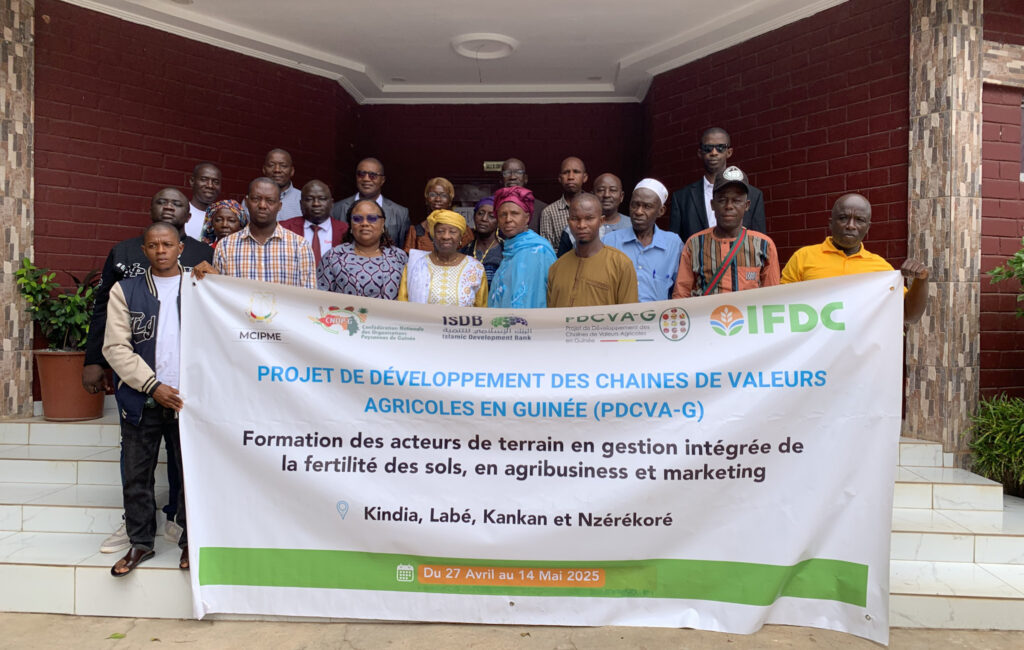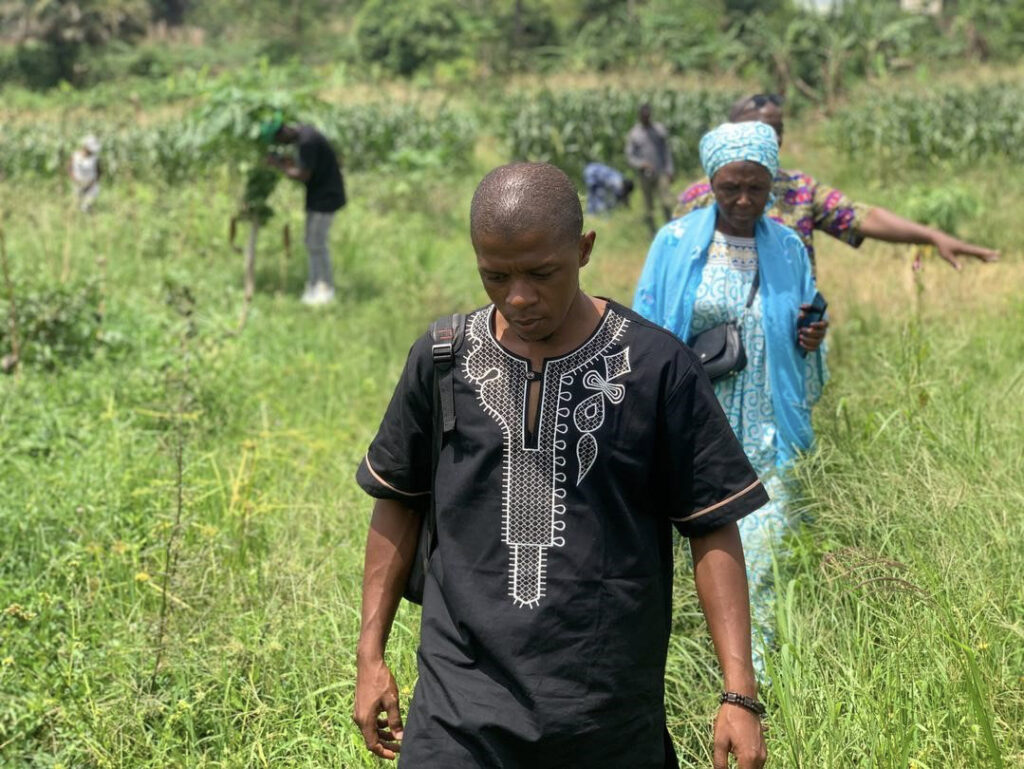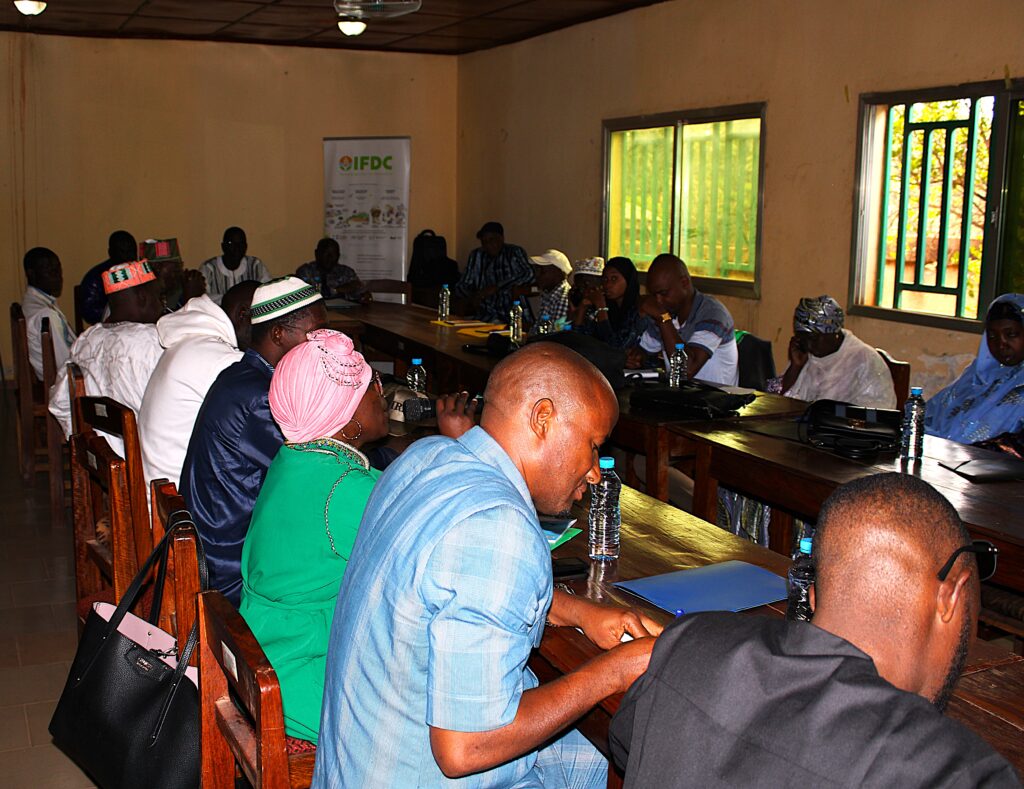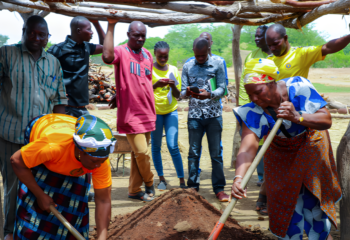
Trainers from the Agricultural Value Chain Development Project in Guinea (PDCVA-G), led by the Ministry of Commerce, Industry, and Small and Medium Enterprises and co-implemented with IFDC, presented an innovative training program in the country’s four principal regions of Kankan, Kindia, Labé, and N’Zérékoré from April 28 to May 14.
A total of 80 agricultural actors from various sub-sectors gathered at their respective training locations to enhance their knowledge and capabilities in integrated soil fertility management, agribusiness, and agricultural marketing.
This training initiative supports PDCVA-G’s goal to sustainably and inclusively strengthen the technical and economic skills of producers, processors, and traders for a more competitive, resilient, and market-oriented agriculture sector in Guinea.
“Thanks to the training, I’ve learned how to better organize my processing activities, make them more profitable, and promote our products to attract more customers in the market.”
Marie Rose Bamba, local processor in the N’Zérékoré region
The team strategically designed content and activities to strengthen key links in agricultural value chains, targeting producers, processors, traders, and young entrepreneurs. Furthermore, training sessions were carefully tailored to the specific agroecological and economic conditions of each region and delivered in two phases: an initial theoretical phase in the classroom, followed by a practical phase involving field visits and hands-on exercises.

Since PDCVA-G aims to increase the technical and organizational capacities of agricultural actors, the project team designed opportunities for participants to learn and practice important topics, including:
- Agricultural value chains, agribusiness, and marketing techniques.
- Agricultural product certification to access new markets.
- Product processing and marketing, with a focus on priority crops in each region.
- Integrated soil fertility management (ISFM) for sustainable and environmentally friendly agricultural practices.
- Crop pest control to secure harvests and reduce post-harvest losses.
Producer Mariama Barry praised the quality and relevance of the training in Kindia, especially for women, saying, “This training has made us happy and taught us a lot… There are technical and economic aspects that we did not understand before. Today, I know how to plan a profitable agricultural activity, target the right markets, and better manage our family farm.”

In N’Zérékoré, local processor Marie Rose Bamba also shared her enthusiasm, saying, “I understand that everything begins with good agricultural production. Thanks to the training, I’ve learned how to better organize my processing activities, make them more profitable, and promote our products to attract more customers in the market.”
Ataoulaye Diallo, a producer in Labé, observed, “Before, we only heard about agricultural value chains without really understanding them. Today, I have a good grasp of the stages from production to marketing, and I know how to identify key actors and opportunities to add value to our products.”
These successful training sessions are part of PDCVA-G’s objective to promote the inclusive and sustainable development of targeted agricultural value chains by placing local skills at the heart of the process.
Such training is an essential step toward advancing the technical, organizational, and economic capacities of agricultural actors and laying the foundation for a productive, competitive, and resilient agriculture sector. By equipping farmers, processors, and traders with practical knowledge and skills, these efforts help ensure sustainable growth, improved livelihoods, and greater food security for communities across the country.
The Agricultural Value Chain Development Project in Guinea (PDCVA-G), funded by the Islamic Development Bank (IsDB) and implemented in collaboration with Guinea’s Ministry of Commerce, Industry, and Small and Medium Enterprises, is a five-year program (2021-2025) based in the Republic of Guinea with the primary objective of developing a sustainable agriculture sector by facilitating the transition from subsistence farming to a viable market-oriented system.




